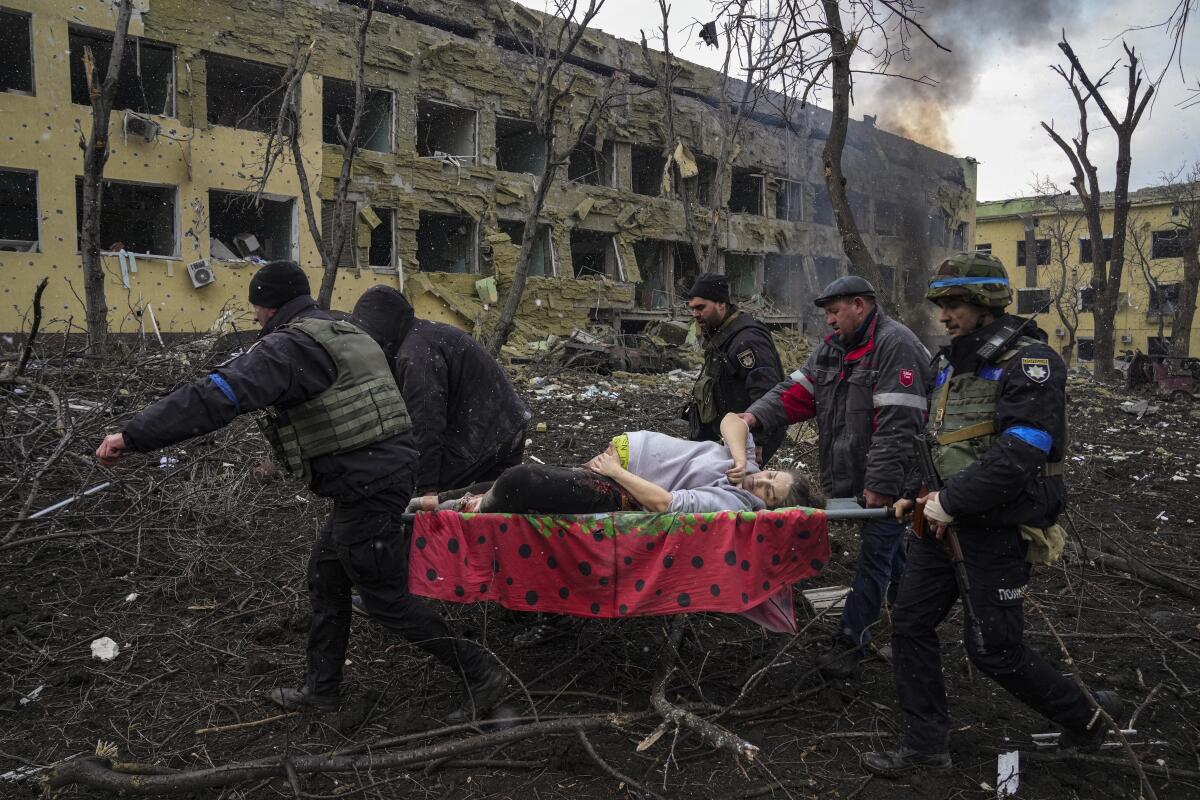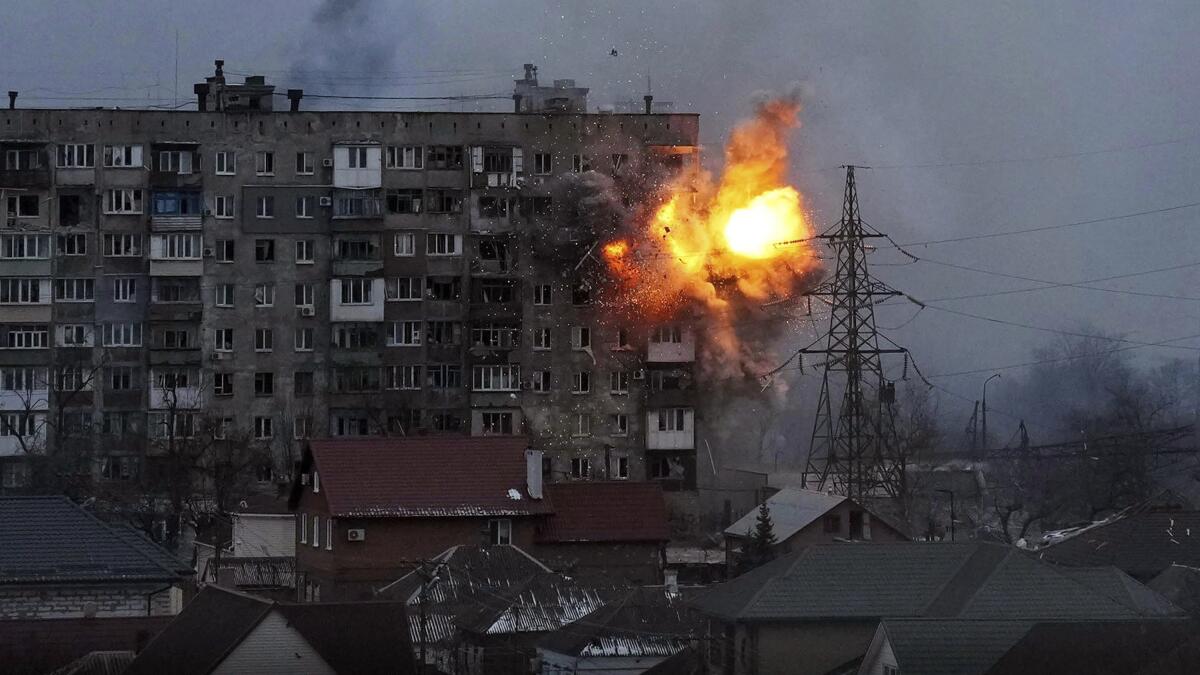Review: Agonizing and essential, ’20 Days in Mariupol’ shows us the war atrocities in Ukraine

Nearly 17 months in, Russia’s savage war in Ukraine is no less urgent a peril for democracy and global stability. And yet it can also can feel relegated to one more dour item jockeying for position in the news diet of even the most conscientious citizen.
That changes, of course, when updates touch the halls of power, as with the recent coup plot against Russian President Vladimir Putin. But the reality of what the war is like for targeted Ukrainians is a grim truth that’s all too readily sidelined as the months drag on. Which is why Mstyslav Chernov’s immersive, shattering documentary recounting the invasion’s first weeks, “20 Days in Mariupol,” is a brutal, necessary, heart-pounding reminder of why the siege shocked the world, and what remains at stake whether you’re staying apprised or not. Acrid and harrowing, it’ll slap you awake.
A videographer and journalist who grew up in Kharkiv, Chernov is an experienced conflict reporter for the Associated Press. When a Russian Federation siege looked imminent in late February 2022, Chernov, photographer Evgeniy Maloletka and field producer Vasilisa Stepanenko — all Ukrainians — decamped to Mariupol, anticipating how strategically desirable Putin would find the industrial port city. Chernov’s narration captures what’s eerie about the moments before the first siege: “Wars don’t start with explosions, they start with silence.”

When the airstrikes begin, devastation and chaos come swiftly. Terror takes over as the displaced seek basement safety for their families or — evacuation routes permitting — a way out. Chernov tells a distraught woman in the street to go home, thinking civilians won’t be targeted, but his camera captures how wrong he is as smoke rises from residential areas, and the gruesome scene at an embattled emergency hospital reveals just who’s dying from the indiscriminate shelling.
“Keep filming,” one doctor bitterly barks as they struggle to save a 4-year-old girl, a bleeding woman and a soccer-playing teenage boy whose legs are blown off. Which means Chernov’s film is saying to us: Keep watching. As hard as that often is.
Another insight offered by the film concerns the complex nature of war reporting: including the team’s efforts to stay alive (with the help of the Ukrainian military), and finding a working internet connection to upload video to far-away editors. Western news networks showed the world these images — destroyed apartment buildings, makeshift trench graves for slaughtered civilians, a bombed-out maternity hospital — at a time when Russian disinformation (a taste of which we get briefly) would become another crucial front.
In its pulsating, soul-piercing bleakness, “20 Days in Mariupol” also depicts how a war like this is designed to pulverize hope. Wanton destruction doesn’t merely isolate, it aims to sow confusion and dissent in the fearful, to seed defeat before the enemy even rolls in. And when we do see, from a high hospital window, the Russian tanks rumble into view, the effect is chilling.
Though there are signs of the gritty resilience that would come to symbolize Ukraine’s inspiring survival and pushback, it’s also shocking to find citizens who don’t know who to blame for their predicament, or who’d rather loot than resist, as occupation sets in. Chernov’s film is as unflinching an account of being trapped inside a city’s fall as you’re likely to see. It’s not surprising that he and his fearless field team were recently awarded a Pulitzer Prize for the eye-opening, visceral dispatches that comprise “20 Days in Mariupol.” Their work, and this on-the-ground glimpse at how they got it, deserve our attention.
'20 Days in Mariupol'
In Ukrainian and Russian, with English subtitles
Not rated
Running time: 1 hour, 34 minutes
Playing: Starts July 21 at Laemmle Monica, Santa Monica
More to Read
Only good movies
Get the Indie Focus newsletter, Mark Olsen's weekly guide to the world of cinema.
You may occasionally receive promotional content from the Los Angeles Times.










